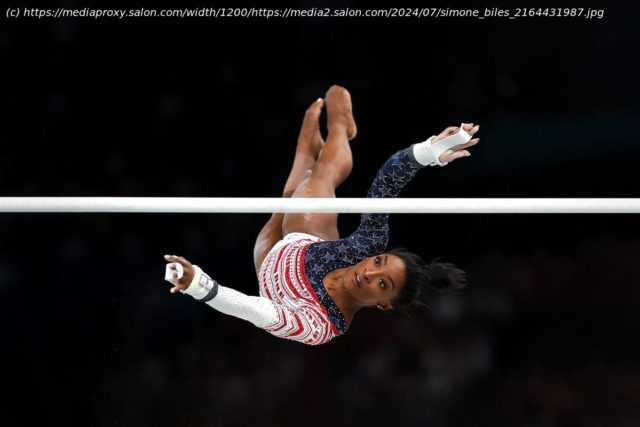Stressors can bring on changes in our physiology, experts say. Some, like Biles, overcome it — others don’t
On July 30, the U.S. women’s gymnastics snagged a gold medal in the team final of the Olympics. For gymnast Simone Biles, the win not only marked yet another Olympic medal — she has earned nine such medals and 30 World Championship medals, making her the most decorated gymnast in history — it also served as the perfect ending for her so-called “redemption tour” after suffering from the «twisties.»
According to Cleveland Clinic, the twisties are defined as “a mental block that creates a dangerous disconnect between mind and body while gymnasts are airborne.” As one can imagine, it can be very dangerous; Biles has previously described the condition as getting “lost” in the air. The mental health condition led Biles to withdraw from multiple events during the Tokyo 2020 Olympics.
“I knew from that very moment it wasn’t like one time and done. You can feel it in your head,” Biles said in the Netflix documentary “Simone Biles Rising.” Biles made the decision to prioritize her mental health. A case of the “twisties” has been compared to the so-called “yips,” which can happen in baseball and golf and was famously depicted in the Apple TV+ show «Ted Lasso.» The Mayo Clinic describes it as “a type of focal dystonia, a condition that causes involuntary muscle contractions during a specific task.”
“Some athletes become so anxious and self-focused — overthinking to the point of distraction — that their ability to perform a skill, such as putting, is impaired,” the Mayo Clinic states.
For professional, Olympic-level, athletes, it’s hard to imagine that after hours of training, and being one of the best in their sport in the world, a mental block can have such an effect on performance. But experts tell Salon it’s a testament to the power of the mind in sports. Jamie Shapiro, a certified mental performance consultant and professor of sport and performance psychology at the University of Denver, told Salon that athletes frequently give percentages of how much of their sport is mental and how much of it is physical.
Домой
United States
USA — Science Simone Biles and the "twisties": How the mind affects physical performance






